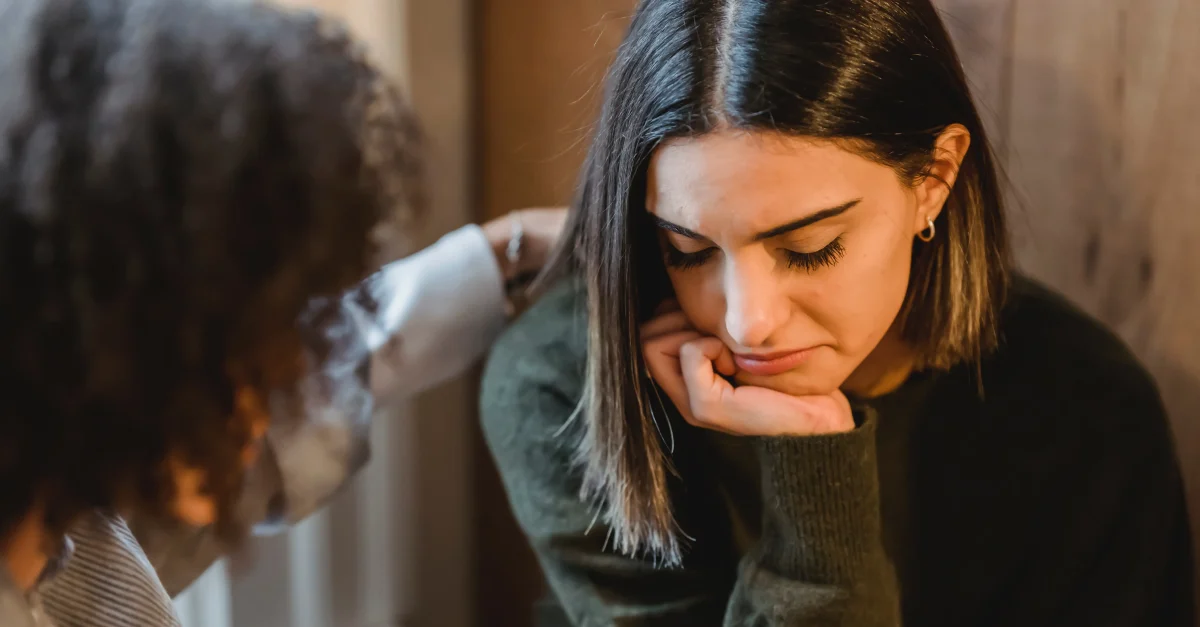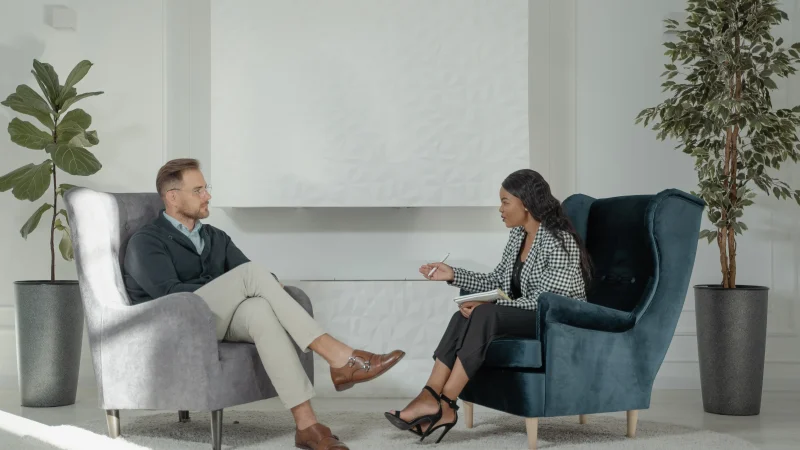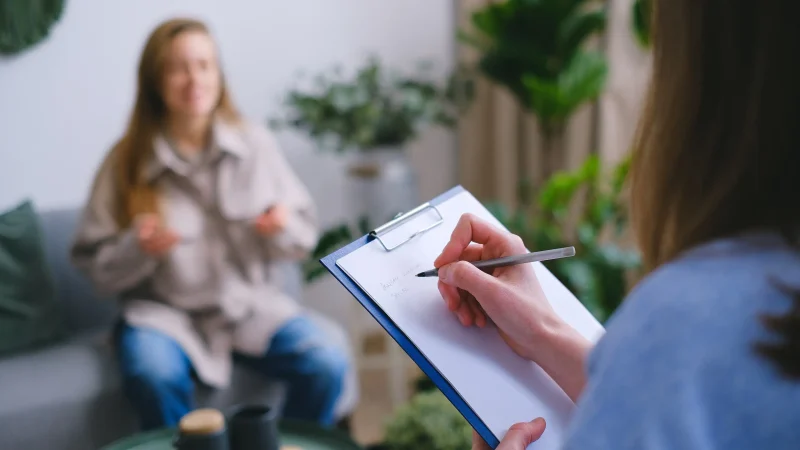
Start Your Recovery Journey Today
This page introduces the services that we provide to the people of Hillingdon. We offer individual addiction counselling online from any location, including Hillingdon. Additional services we provide include interventions and a meeting at home or online to help people to terms with their addiction and realise they need help.
Major UK health insurance providers cover our inpatient addiction treatment and those under the care of Change, Grow, Live and the NHS in Hillingdon can be referred for inpatient addiction treatment. We regularly welcome private patients from Hillingdon to our residential rehab programme and we can arrange sober transport services from Hillingdon to bring you safely to our rehab.
There are also various free alcohol and drug treatment services in Hillingdon which we will list on this page.
Table of Contents
Introduction
The Borough of Hillingdon is the second largest borough in London. Beneath the tinsel of this beautiful West London town lies a disturbing discovery: Residents of Hillingdon are struggling with addictions. In a report documented by Public Health England (PHE), 532 out of 1000 adults living with children in Hillingdon suffer from alcohol addiction, while 335 out of 1000 adults living with children in Hillingdon suffer from drug (opiate) addiction.
This means that an appreciable amount of residents in Hillingdon suffer from addictions and thus will require counselling and therapy.

Download Brochure
Spotting the Signs of Addiction
Addictions may appear in several ways and to various substances or activities such as games, drugs, gambling, work, internet, sex, porn and alcohol.
To get timely care and support, it is essential to know the signs of an addiction. Signs to look out for include:
- Evasive behaviour or making extra efforts to conceal an addictive habit or a substance.
- Feeling pushed or compelled to take a substance (such as drugs, alcohol) or carry out a particular activity (such as gambling, sex, work).
- Needing larger doses of a substance or increased frequency and duration of addictive activity.
- Feeling unable to control an addictive behaviour or your intake of a substance.
- Feeling sick or uneasy when you have not taken or done a particular thing.
The University of Sunderland documented that psychological factors such as trauma and stress, for example, have been shown to play a vital role in the development of addictions. These psychological states can enhance a person’s desire to indulge in addictive behaviours. Other factors like social pressures and environmental factors also contribute to the development of addictions.
Types of Addiction Counselling

Private Addiction Counselling
Private addiction counselling involves one-to-one sessions with a counsellor or therapist specialising in the treatment of addiction. Patients who opt for private rehab will be offered addiction counselling as part of their recovery programme. The benefits of this type of counselling are complete privacy, a serene environment, one-on-one counselling sessions, more thorough examinations to get a deeper understanding of the issue, personalised treatment plans and constant support from our addiction experts.

Online Addiction Counselling
This is a form of addiction counselling which is carried out remotely from the comfort of your home. All you need to do is attend online counselling sessions with your therapists and you’re all set.

NHS Addiction Counselling
NHS addiction counselling is a government-funded service which is freely accessible to people suffering from addictions. A downside to the NHS addiction service is the long wait times and also difficulties in attending to everyone in need of their services due to poor funding.
The Role of the Therapist in Addiction Counselling
The therapist plays a vital role in recovering from addictions. They are responsible for your mental well-being before, during and after your recovery. Therapists help you identify and process hidden feelings and emotions (such as past trauma, grief and heartbreaks) that may have led to your addictions, which is vital for recovery.
Your therapist also ensures that you are placed on the right addiction therapy regimen to ensure a full recovery and long-term sobriety.

We Are Here to Listen
Evidence-Based Therapies
Several addiction therapies have been proven to be effective in managing substance addiction, as well as problem behaviours such as gambling, gaming or overworking. Some of these therapy techniques include:
Cognitive Behavioural Therapy (cbt)
Cognitive behavioural therapy is a psychotherapy technique which targets negative thoughts, behaviours and emotions that enable the cycle of addiction. These negative feelings and actions are identified and worked upon by helping you build better habits and coping mechanisms which in turn breaks the vicious cycle of addiction.
dialectical behavioural therapy (dbt)
Dialectical behavioural therapy is an evidence-based psychotherapy technique which involves exercises aimed at helping you attain emotional control and mindfulness. This technique teaches you to be more intentional and communicative, especially in interpersonal relationships.
Group Therapy
Group therapy is a type of mental health therapy which involves you undergoing counselling with a group of people who are also suffering from addictions. Here, the therapist conducts counselling sessions with a group of people simultaneously. This technique is targeted at expressing how you feel and also understanding that you are not alone and that others go through what you are going through and can relate to what you think.
Family Therapy
In family therapy, you and your family or loved ones undergo counselling. In addictions, you’re not the only one affected; your family and loved ones are also affected. The effect of addictions on families and relationships can be very pronounced, hence the need for family counselling. Involving your family in your recovery journey gives a platform for you all to express and process your feelings towards the addiction and can also foster a sense of unity and intimacy.
Couples Therapy
In couples addiction therapy, people who are married or in romantic relationships bring their spouses or significant other alongside them for counselling. As earlier stated, addictions can cause a strain on interpersonal relationships including marriages and romantic relationships. Thus your partner must be involved in your journey to recovery. Couples therapy is targeted at rebuilding trust in the relationship, fostering communication between one another and addressing enabling behaviours in the relationship.

How Effective is Addiction Counselling?
The effectiveness of addiction counselling is dependent on several factors such as your dedication to stay consistent on your recovery path, your willingness and resolve to end the addiction cycle, the ability of your therapist to successfully execute therapy and counselling sessions, and undergoing therapy that is meant for you and the type of addiction you are suffering from.
Therapy techniques are effective when correctly utilised for the right person in the right circumstances. In addiction counselling, not one size fits all, as different people have different addictions and different needs which may not be well addressed if just one therapy technique is used for everyone.
What to Expect from Addiction Counselling at CATCH Recovery Near the London Borough of Hillingdon
CATCH Recovery addiction therapies near the London Borough of Hillingdon are set in place to provide all-around support for you. You can expect a welcoming, judgement-free and safe environment where you can be free to be yourself and express what you feel. Our therapists are well-trained with a wealth of experience to give the best care you need by diagnosing addictions, uncovering deep-rooted trauma, discovering addiction triggers and leading you on the path of recovery and sobriety.
Support Groups in the London Borough of Hillingdon
Joining support groups in Hillingdon is an effective way of getting to meet other persons who are going through the same thing as you, and also to express your experiences and struggles with people who relate. Support groups in Hillingdon include:
-
Addiction Recovery Community, Hillingdon (ARCH):
Old Bank House, 64 High Street Uxbridge, Greater London, UB8 1JP.
-
Alcoholics Anonymous (AA)
Every Friday at 8 pm at Uxbridge Civic Centre, Room C4+4A, High Street, UB8 1UW
-
Narcotics Anonymous (NA)
Wednesdays at 7:30 pm at Uxbridge Quaker Meeting, 150 York Road, Uxbridge, Greater London, UB8 1QW
-
SORTED
Fountains Mill, 81 High Street, Uxbridge, UB8 1JR
Why Choose CATCH Recovery?
Addictions are difficult to overcome on your own, so let us support you in your journey to recovery. At CATCH Recovery, we are committed to getting you the best care you need. Our primary aim is to arm you with all you need to successfully break the cycle of addiction and attain long-term sobriety.
We are here to help you or your loved ones get through this by providing support and a helping hand before, during and after therapy.
FAQs
How do I find a suitable therapist?
Due to the high demand for addiction counselling in Hillingdon, finding an addiction therapist may be a difficult task. Organisations like the British Association for Counselling and Psychotherapy (BACP) can help provide resources and referrals. Additionally, the CATCH team can assist you in locating the best therapist for your specific needs. We only work with registered and certified specialists.
What is the most effective psychological treatment for addiction?
A combination of evidence-based therapies is effective in psychotherapy. This goes on to say that a personalised therapy regimen is more effective and better preferred to a generalised approach to treatment. This personalised regimen may involve a combination of more than one therapy technique.
How long should I attend therapy?
How long you attend therapy is dependent on certain factors such as your progress, the severity of your addiction and what you plan to achieve after therapy. To know how long it will take you to complete therapy, your CATCH therapist would draw up an individual plan with you which shows the milestones to attain and indicates when therapy will be completed.
How can I find information on local Hillingdon support groups specifically tailored to the needs of individuals with addiction to prescription medications?
If you are looking to join substance-focused group therapy sessions, CATCH Recovery can arrange this for you. Just give us a call and we will tell you the options.